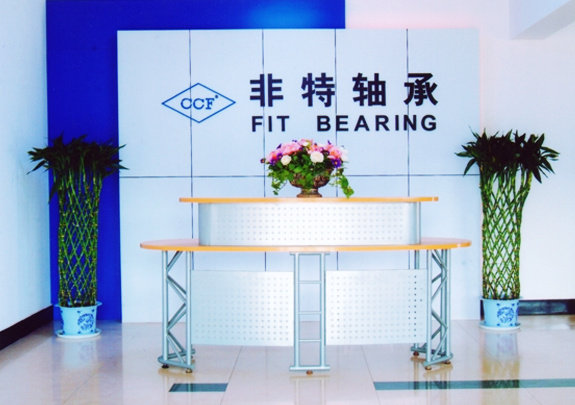CASE IH RIGHT HAND COTTON PICKER SPINDLE / NUT ASSEMBLY - 90 MICRON
VIEW DETAILS
VIEW DETAILS
VIEW DETAILS
VIEW DETAILS
VIEW DETAILS
VIEW DETAILS
VIEW DETAILS
VIEW DETAILS
VIEW DETAILS
VIEW DETAILS
VIEW DETAILS

Zhejiang Fit Bearing Co., Ltd. was established in November 2003 with a registered capital of USD 2 million. The plant covers an area of ??35,000 square meters and 20,000 square meters, with more than 120 workers and more than 20 technical management personnel.
At the beginning of its establishment, the company specialized in producing all kinds of low-noise long-life ball bearings. As a professional China Agricultural/construction machinery parts Factory and Agricultural/construction machinery parts Manufacturers, After years of development in the bearing industry, we have accumulated rich experience in production and management. In 2013, we began to vigorously develop agricultural machinery parts and construction machinery parts. At present, we have formed a team with exquisite technology and excellent management, capable of R&D, manufacturing, sales and service in the bearing industry and agricultural machinery parts. After years of hard work and development, we have formed a capable R&D and manufacturing team. They have rich knowledge and experience in materials, heat treatment, machining and grinding. There are currently 9 professional R&D engineers responsible for the development of new products.
Understand the role of ball bearings in industrial motorsBall bearings are one of the key components in industrial motors. They are mainly used to sup...
Read MoreMain functions of automotive bearingsAutomobile bearings are an indispensable and important component in vehicles. They are responsible for supporting...
Read MoreChecking by noiseA common way to detect whether a motorcycle bearing is damaged is to judge by noise. When a bearing is damaged, it usually makes abno...
Read MoreCheck the industrial motor bearing condition regularlyDuring use, the industrial motor bearing is subjected to long-term load and high-speed rotation,...
Read MoreAre there any emerging trends or advancements in agricultural/construction machinery parts that are worth considering?
1. Precision agriculture: With the increasing use of technology and IoT in agriculture, there is a growing demand for precision agriculture machinery parts. These parts enable farmers to accurately and efficiently monitor and control variables like soil moisture, nutrients, and pest management, resulting in improved crop yields and resource optimization.
2. Autonomous machinery: Automation is rapidly transforming the agricultural and construction sectors. Autonomous machinery parts, such as sensors, GPS systems, and computer vision, allow for self-driving tractors, harvesters, and excavators. These advancements reduce human labor, increase productivity, and optimize operations.
3. Electric and hybrid technologies: As industries work towards reducing emissions and transitioning to cleaner energy sources, there is a rise in electric and hybrid machinery parts. Electric motors, batteries, and hybrid powertrain systems are being integrated into agricultural and construction equipment, resulting in reduced fuel consumption, lower noise levels, and decreased environmental impact.
4. Additive manufacturing (3D printing): 3D printing is gaining popularity in manufacturing agricultural and construction machinery parts. This technology allows for rapid prototyping, customization, and on-demand production. It also enables the creation of complex and lightweight parts, reducing material waste and costs.
5. Telematics and data analytics: Telematics systems and data analytics are being integrated into machinery parts to provide real-time monitoring and performance analysis. These parts can track equipment usage, diagnose maintenance issues, optimize fuel consumption, and improve overall efficiency.
6. Sensor technology: Advancements in sensor technology are transforming machinery parts. Sensors can detect variables like temperature, pressure, vibration, and moisture, helping operators make informed decisions and preventing equipment failures. Sensor-equipped parts also enable predictive maintenance, reducing downtime and increasing machine lifespan.
Are there any specific maintenance practices that can extend the lifespan of agricultural/construction machinery parts?
1. Regular cleaning: Keeping machinery parts clean and free from dirt, debris, and corrosion can prevent damage and ensure smooth operation. Regularly inspect and clean the parts, paying attention to filters, vents, and cooling systems.
2. Lubrication: Proper lubrication of moving parts reduces friction, wear, and tear. Follow manufacturer recommendations for lubricants and schedule regular lubrication intervals. Also, check and maintain adequate levels of grease, oil, or other lubricants.
3. Inspections and preventive maintenance: Regular inspections help identify any potential issues or signs of wear before they become major problems. Set up a preventive maintenance schedule to replace worn or damaged parts, check for leaks, and perform routine servicing.
4. Proper storage: When machinery is not in use, proper storage is essential to protect parts from environmental damage. Store equipment in a dry, covered area, and keep it away from moisture, extreme temperatures, and direct sunlight.
5. Operator training: Providing proper training to equipment operators can significantly impact the lifespan of machinery parts. Educate operators on correct usage, maintenance, and safety procedures to minimize operator errors and prevent unnecessary wear and tear.
6. Component balance and alignment: Ensuring proper alignment and balance of machine components, such as belts, pulleys, bearings, and gears, reduces stress and extends their lifespan. Regularly inspect and adjust these components to prevent premature failure.
7. Timely repairs: Addressing small issues or malfunctions promptly can prevent them from escalating into more significant problems. Have a well-equipped repair kit on-site and address repairs as soon as possible to avoid further damage.